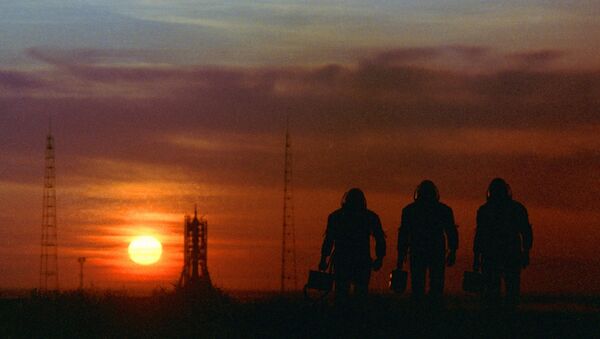"We were reviewing various concepts of commercial space rockets and came up with the idea of launching people into space via suborbital trajectory. We met an investor who wanted to participate in some kind of space project, and decided that suborbital tourism would be the best choice," he told Sputnik.
The project’s estimated development cost is about $150 million. CosmoCourse has already managed to receive approval from Russia’s space agency Roscosmos for the technical design specifications of the project.
"We spent a lot of time explaining who we are and what we’re working on to Roscosmos and they listened to us. The agency’s head Igor Anatolyevich Komarov gave the order to provide assistance to our project," Pushkin said.
The company intends to begin space launches by the end of 2020, using the Kapustin Yar testing range in Russia’s Astrakhan Region as a base.
"It is a good launch site. Korolev launched his first rockets there," Pushkin explained. "We also consider using the Baikonur cosmodrome for our purposes, or perhaps even using both sites simultaneously."
The health requirements for the would-be suborbital tourists will be fairly light, "just like for a person boarding a plane."
"The passengers will feel a G-force, but it will be minor and short-term, up to about 4Gs during insertion and up to 5Gs during landing. As long as tourists haven't undergone any recent operations and don’t have any loose teeth, untreated fractures, cardiac diseases and the like, they will be fine," CosmoCourse’s head explained.
Pushkin also pointed out that so far the company hasn't cooperated with any foreign organizations in order to avoid dealing with possible bans on technology exchange. Furthermore, he added, the company already has all the technologies it requires.



